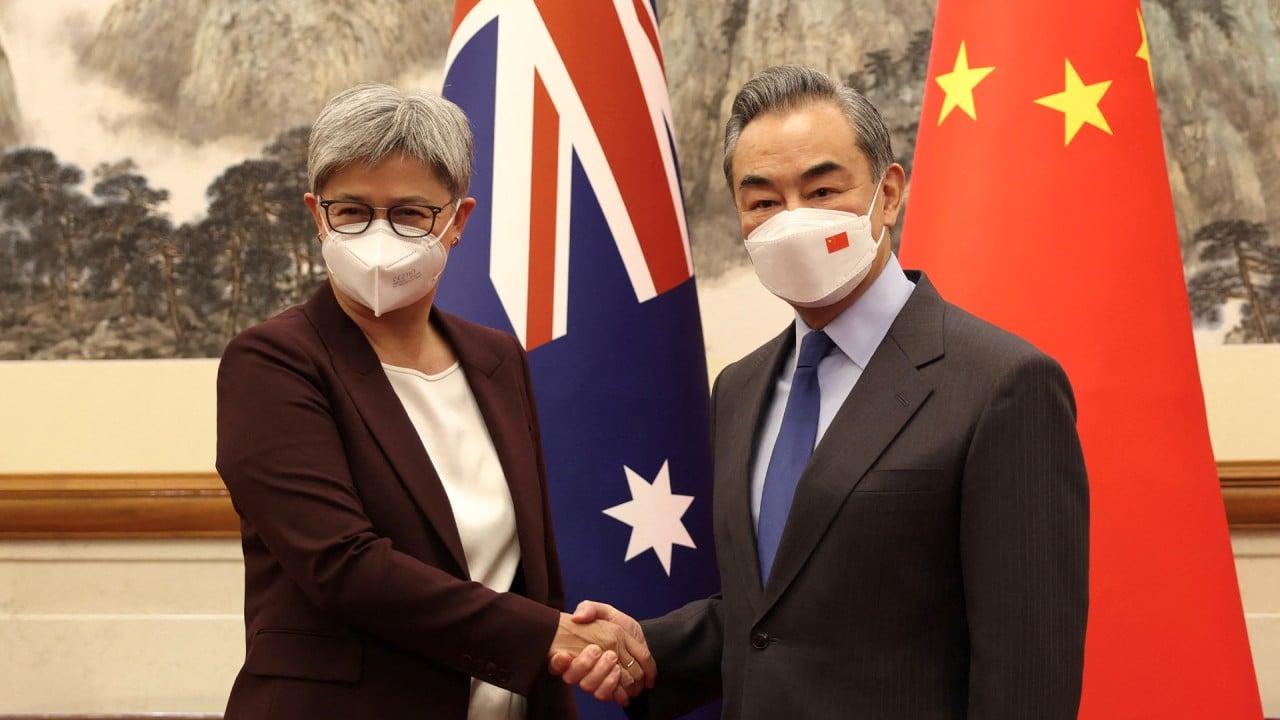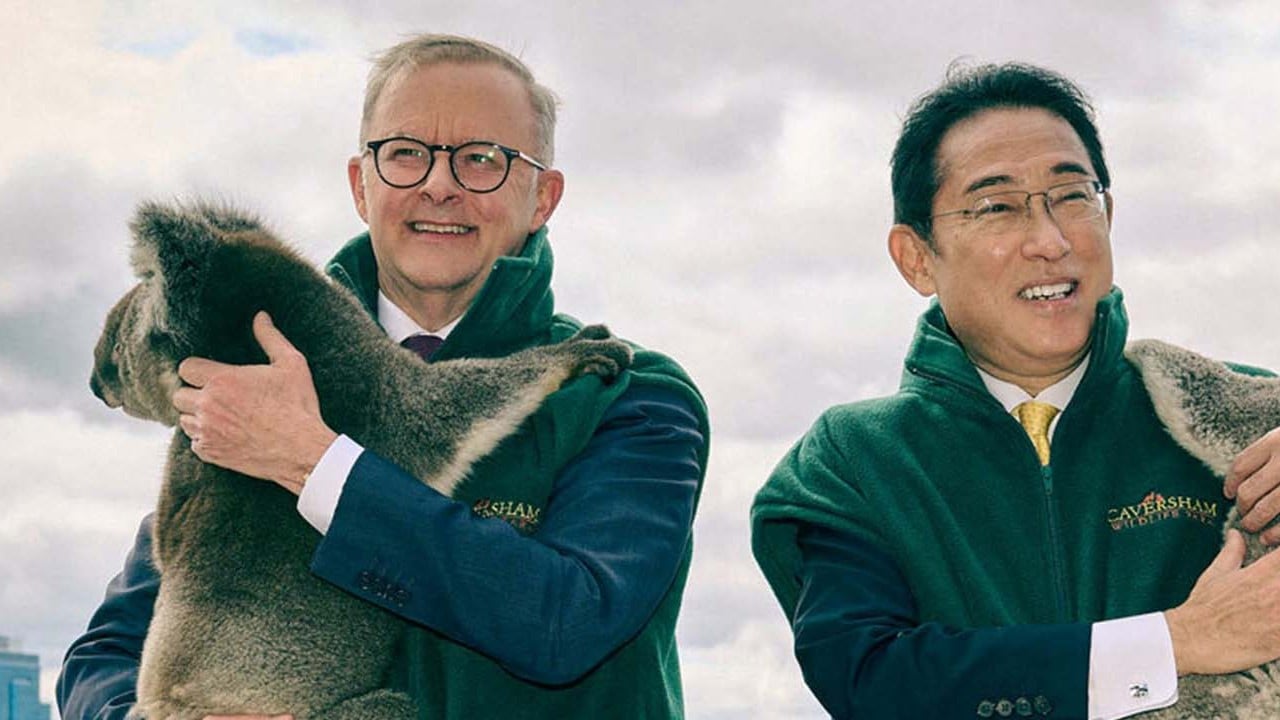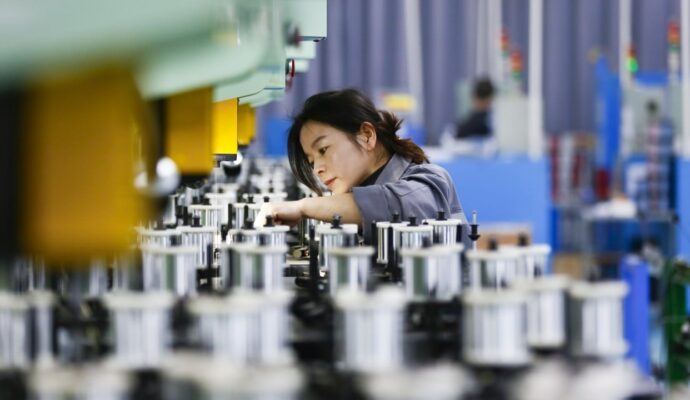
The joint statement came after foreign ministers Wang Yi and Penny Wong met in Beijing, the first visit by an Australian foreign minister since 2018.
Talks between China and Australia have been suspended for years due to growing tensions after Australia’s ban on Huawei Technologies’ 5G equipment and Chinese restrictions on Australian products after former prime minister Scott Morrison called for an international inquiry into the origins of Covid-19.
Wong said in a press conference following Wednesday’s meeting that she had asked for the A$20 billion (US13.3 billion) worth of trade restrictions to be lifted and said there had been a “good discussion” on the issue, but there was no immediate outcome.
She also said she had asked for a more “structured dialogue” between the two sides to manage their differences.
Meanwhile, her Chinese counterpart said in a foreign ministry statement that the economies of Australia and China are “highly complementary”.
“Mutual consensus and cooperation” should be the “keynote” of their relations, he added, and the two countries should “treat each other as equals” and refrain from interfering in each other’s internal affairs.
Wong also referred to the detention of two Australian citizens, journalist Cheng Lei and writer Yang Hengjun, on spying charges. Australian diplomats have complained about being denied access to the pair.
“Australia does believe that those Australians should be given appropriate consular access and we’ll continue to advocate for that,” Wong said in the press conference.
Shi Yinhong, an international relations professor at Renmin University, said both countries had shown they are willing to increase high-level communication and prevent their relations from further deteriorating, but doubted there would be significant changes.
“On all fairly broad, major policy issues, neither side has made significant and durable concessions in exchange for significant, lasting concessions from the other. At the same time, all parties are still holding to their established positions and policies,” he said.
John Lee, a senior fellow at the Hudson Institute said mutual distrust lingers and Australia will not make policy changes that China has demanded in areas such as defence and foreign investment.
But he believed more cooperation was possible in areas such as climate change, where both countries have set ambitious goals.
“There is the resumption of diplomacy but it does not represent any meaningful reset in the bilateral relationship,” he said.
“China’s economic measures against Australia have not been lifted in any substantial sense. Even if they are in the future, this would not be seen as a reason to reciprocate with concessions by Australia as the latter sees the economic punishments as illegitimate in the first place.”
Zhang Baohui, a Lingnan University professor who specialises in Asia-Pacific studies, said both sides were “motivated to turn over a new page” and the meeting had met expectations.
“Full restoration of economic and trade relations and the release of the detained Australians should come along as the bilateral relationship warms up. However, given Australia’s close and tightening relations with the US, whether Beijing and Canberra can fully achieve strategic mutual trust remains to be seen,” he said.
Chinese investments have faced tightened scrutiny, especially on deals involving critical infrastructure, since Australia revamped its foreign investment law to meet national security concerns in 2020. Xi raised the issue last month in his meeting with Albanese and called for a better investment environment for Chinese businesses.
Beijing is also concerned about recent developments in Australia’s long-standing alliance with the United States.
Canberra recently allowed Washington to expand troop rotations in its country and recent reports have said that the US is planning to deploy B-52 nuclear-capable bombers at the Australian airbase in the Northern Territory – a move widely seen as preparing to act in the event of any crisis in the Taiwan Strait.
Beijing has criticised both moves as “undermining regional stability”.


